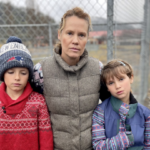Should Local Terrorism Victims Be Compensated?

Australians who have fallen victim to acts of terrorism overseas are entitled to compensation from the federal government, while those who are victims of attacks on home soil are not, an anomaly which has led to calls for the federal government to change the law.
NSW Attorney General Brad Hazzard has asked for the law to be changed so that local victims can gain access to the federal compensation scheme that allows a lump sum compensation payment of up to $75,000 for Australians affected by terrorism overseas. These changes have been requested after the Sydney siege, in which two people died and others escaped after being held hostage in the Lindt café by an extremist gunman.
If this attack had taken place overseas, the victims would have been eligible for federal compensation. While they are eligible for a limited amount under NSW law, this is not as much as if the attacks had been carried out overseas.
Why is compensation provided for acts of terrorism?
The argument for providing compensation for victims of terrorism extends from the belief that a government has a responsibility to protect and care for its people, even whilst they are overseas. In the case of the Sydney attack in December, although an inquest is being held, there have been questions as to why the gunman was released under the bail act in NSW and why he wasn’t being more carefully observed considering he had a known reputation as an extremist and made threats on his social media pages in the days leading up to the incident.
Another reason why compensation exists for terrorism victims is as a way of acknowledging the trauma and distress that being involved in a terrorism incident can cause. The physical injuries sustained in a terrorist attack, as well as the level of emotional trauma, can impact victims for the rest of their lives and affect their ability to work and support their families.
Criteria for compensation
The Australian Government pays compensation to victims who have been involved in terrorist acts overseas as well as their close family members in cases where the victim died during the attack. Administered by Centrelink, to be eligible for this payment you need to fulfil a certain number of criteria, including that you were in the place of the attack, that you were harmed during the attack, and that you weren’t involved in the commission of the attack.
Payments have been made to victims and their close family members after the September 11 attacks, the Bali bombings, the London bombings and a number of other overseas declared terrorism events.
What compensation is available for victims of local attacks?
The Sydney siege is the first of its kind to have taken place in Australia and although in the media it has been referred to as a terrorist attack, the government didn’t initially recognise it as one, often referring to the gunman as a lone madman rather than a terrorist. That changed earlier this month, when the federal government declared the incident a terrorist attack in order to allow nearby businesses affected by the lockdown to claim for lost business on their insurance.
For victims of the siege, the only current avenue of compensation is through the NSW Victim Rights and Support Act 2013, which provides a maximum payout of $15,000 for people who are victims of an act of violence that occurred in NSW, and suffered some form of injury as a result. Support is offered to victims and the close family of victims in the form of counselling and financial assistance. Unfortunately the amounts are much lower than victims of overseas acts of terrorism would receive under federal law, an anomaly that has been widely criticised as being unfair.
Should the law be changed?
According to Mr Hazzard, the law should be changed to allow victims of local terrorism attacks to gain access to the federal compensation payments available to overseas victims. He believes that this should be provided in addition to the local NSW victims support compensation scheme.
A number of MPs have joined Mr Hazzard in requesting that victims of the Sydney siege be given more compensation and the federal government is said to be considering the request. The arguments against providing additional compensation focus on concerns about whether monetary compensation is necessary or even advisable in the circumstances, especially for those who weren’t physically injured and are already receiving counselling.






